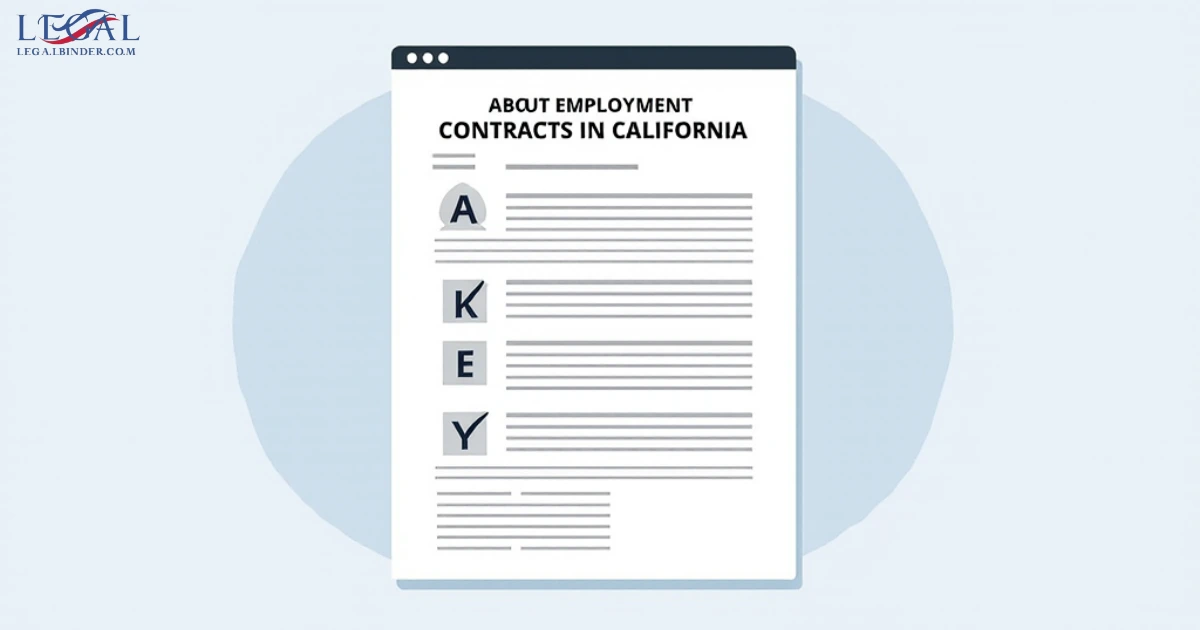Physical Address
304 North Cardinal St.
Dorchester Center, MA 02124
Physical Address
304 North Cardinal St.
Dorchester Center, MA 02124

The FAQs California employment below answer the most common questions about employment contracts in California. Whether you’re an employee reviewing an offer or an employer drafting terms, these FAQs explain California-specific rules about at-will status, written agreements, wages, non-competes, dispute resolution, and where to find official forms. Read the Quick Overview first, then use the step-by-step guidance to act on any issues in California.
This page collects concise, practical answers to frequently asked questions about employment contracts in California. It explains the difference between at-will and written contracts, mandatory disclosures, what provisions are enforceable under California law, and which state agencies handle disputes. Use this as a reference to decide when to seek legal advice in California.
California enforces employment rules through several state agencies. The California Department of Industrial Relations (DIR) handles wage-and-hour matters. The California Employment Development Department (EDD) manages tax withholding and unemployment claims. The California Civil Rights Department (CRD) enforces discrimination and retaliation protections. If an employee works in California, that state’s laws generally govern wage, leave, and workplace protections regardless of where the employer is located.
Employers must also verify eligibility to work (Form I-9) and collect appropriate withholding forms (W-4 and DE 4) for employees whose work location is in California.
Response times vary by agency and claim type. Wage claims filed with the Division of Labor Standards Enforcement (DLSE) may take several months. Unemployment determinations from the EDD can take weeks. Civil litigation timelines are longer and involve filing fees that differ by court and claim amount. Statutes of limitations are critical in California — for example, written contract claims are typically four years and oral claims two years — so act promptly.
Use these authoritative state resources for forms, filing instructions, and official guidance:
No. Most California employment is at-will by default, but written contracts are recommended to clarify terms like salary, duration, and severance.
Generally not. California disfavors non-compete agreements under Business & Professions Code §16600, except in narrow circumstances such as the sale of a business.
If you are fired, California law requires immediate payment of all wages due. If you resign and give at least 72 hours’ notice, final pay is due on your last day; otherwise it is due within 72 hours.
An employer cannot unilaterally reduce wages below the contract amount or below California minimum wage. Any change should be documented and agreed to in writing.
Collect your pay records and file a wage claim with the DLSE (DIR). The DIR website provides the form and instructions for submitting a claim.
Arbitration clauses can require private dispute resolution, but California law scrutinizes certain arbitration provisions and employees retain some statutory protections. Consult counsel to understand how arbitration affects your rights.
No. California restricts confidentiality provisions that would prevent reporting unlawful conduct, such as discrimination or harassment. Settlement agreements with such clauses may be limited by state law.
California recommends retaining payroll and personnel records for several years (commonly at least three years) to support any future claims or audits.
These FAQs California employment provide a practical starting point for common contract questions, but individual situations can vary. If you face a dispute, collect your documentation, consult the state links above, and consider speaking with a California employment attorney for tailored advice. For additional templates and resources, visit our USALegalBinder homepage.